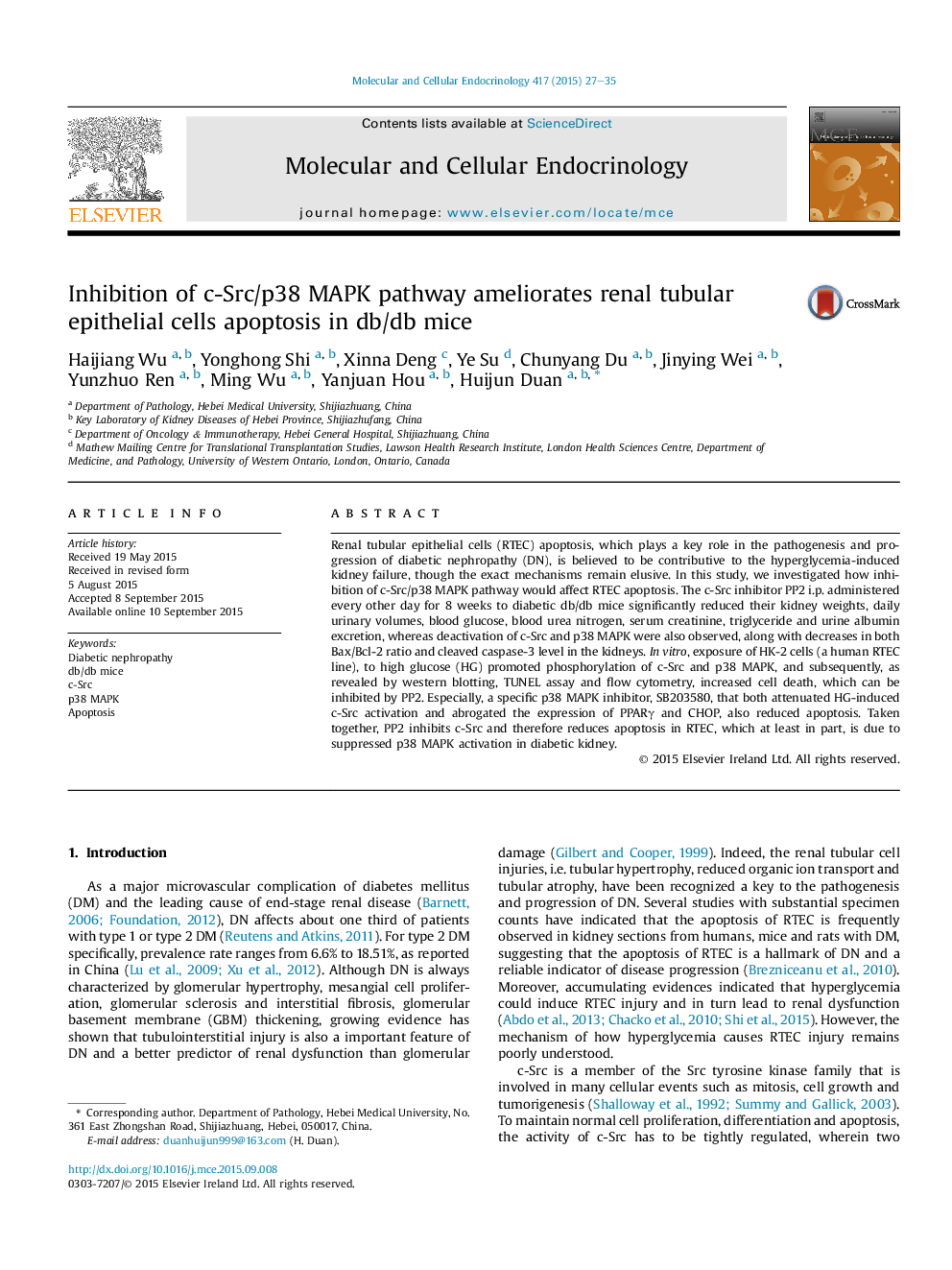| Article ID | Journal | Published Year | Pages | File Type |
|---|---|---|---|---|
| 8476884 | Molecular and Cellular Endocrinology | 2015 | 9 Pages |
Abstract
Renal tubular epithelial cells (RTEC) apoptosis, which plays a key role in the pathogenesis and progression of diabetic nephropathy (DN), is believed to be contributive to the hyperglycemia-induced kidney failure, though the exact mechanisms remain elusive. In this study, we investigated how inhibition of c-Src/p38 MAPK pathway would affect RTEC apoptosis. The c-Src inhibitor PP2 i.p. administered every other day for 8 weeks to diabetic db/db mice significantly reduced their kidney weights, daily urinary volumes, blood glucose, blood urea nitrogen, serum creatinine, triglyceride and urine albumin excretion, whereas deactivation of c-Src and p38 MAPK were also observed, along with decreases in both Bax/Bcl-2 ratio and cleaved caspase-3 level in the kidneys. In vitro, exposure of HK-2 cells (a human RTEC line), to high glucose (HG) promoted phosphorylation of c-Src and p38 MAPK, and subsequently, as revealed by western blotting, TUNEL assay and flow cytometry, increased cell death, which can be inhibited by PP2. Especially, a specific p38 MAPK inhibitor, SB203580, that both attenuated HG-induced c-Src activation and abrogated the expression of PPARγ and CHOP, also reduced apoptosis. Taken together, PP2 inhibits c-Src and therefore reduces apoptosis in RTEC, which at least in part, is due to suppressed p38 MAPK activation in diabetic kidney.
Related Topics
Life Sciences
Biochemistry, Genetics and Molecular Biology
Cell Biology
Authors
Haijiang Wu, Yonghong Shi, Xinna Deng, Ye Su, Chunyang Du, Jinying Wei, Yunzhuo Ren, Ming Wu, Yanjuan Hou, Huijun Duan,
